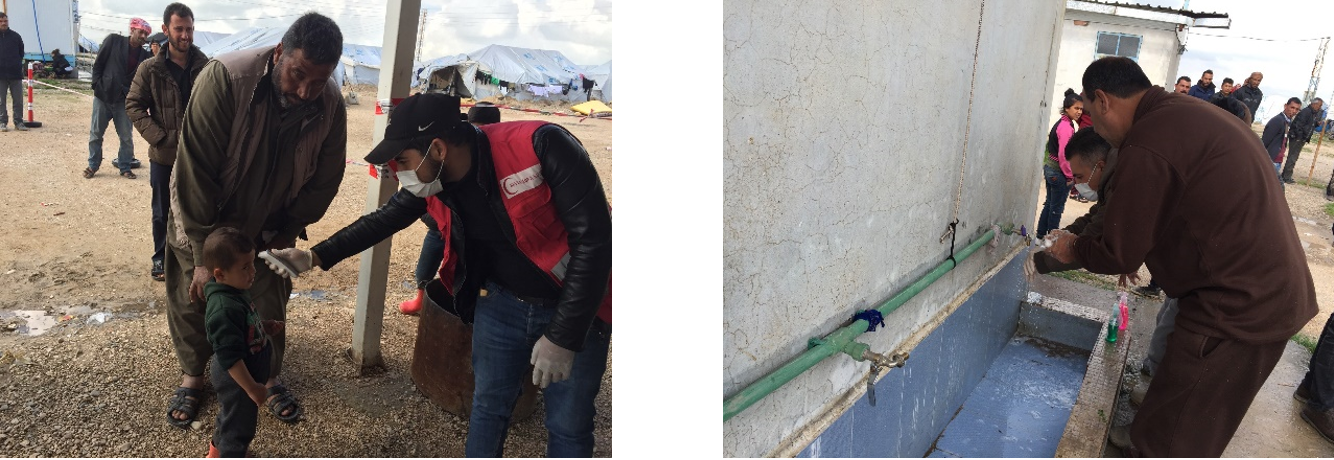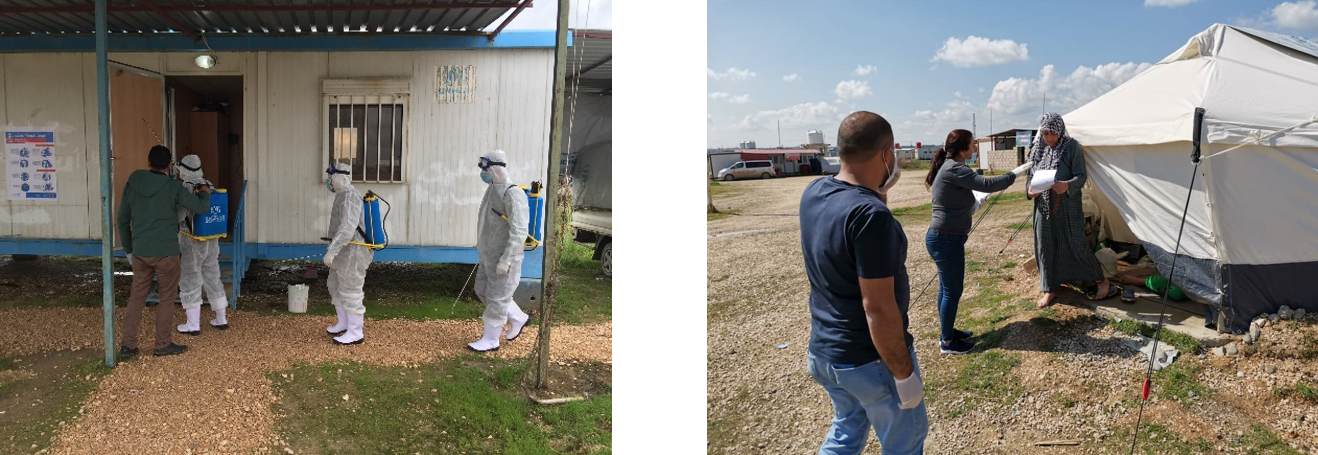On March 11, 2020 the World Health Organization (WHO) declared the COVID-19 novel coronavirus outbreak a pandemic. With more than 160,000 internally displaced people in northeast Syria living in camps and collective centers, the risk of the disease spreading in the region is high. There are few fully operational health centers and many of them lack the appropriate capacity to respond to day to day medical needs, let alone a pandemic.
Humanitarian actors in the region must navigate this new reality as concern over the spread of COVID-19 increases worldwide. Blumont’s team remains dedicated to delivering life-saving assistance to displaced communities while adapting to changing needs. Blumont’s priorities are to ensure the health and well-being of beneficiaries, teams, and partners; and to continue supporting communities and our donors the best way possible. Teams are following global, regional, and local guidance regarding curfews and restrictions—including limiting the number of staff on sites.
 Keeping Camp Populations and Humanitarian Actors Informed
Keeping Camp Populations and Humanitarian Actors Informed
Serving as managers in six camps and informal settlements, while also providing support in dozens of displacement sites throughout northeast Syria, Blumont shares critical information about the prevention of COVID-19 with people in camps, service providers, local authorities, and host communities. Teams have posted WHO information on handwashing, social distancing, and other preventative measures throughout camps, host communities, collective centers, partner bakeries that provide bread to communities, and on the trucks that transport flour to the bakeries.
In coordination with partners, Blumont held separate awareness sessions on proper hygiene practices, such as handwashing, tailored for both children and adults. Sessions were kept small, with less than 10 people in each, to allow for at least two meters of space between participants. When Camp Administrators banned group gatherings, Blumont’s team went tent to tent to share information and answer questions—keeping an appropriate distance, while also keeping residents apprised of the situation. Block leaders – appointed leaders for a group of approximately 20 families – were trained on identification of symptoms, preventative measures, and how to report suspected cases. These pre-existing camp governance systems assist in raising awareness when social distancing precautions reduce team activities.

Ongoing Support Tailored to Meet Needs
While COVID-19 undoubtedly poses multiple challenges to regular service provision, beneficiaries remain Blumont’s top priority. All life-saving activities – such as food distribution, water trucking, health referrals, solid waste management, and garbage collection – are ongoing, with processes and procedures adapted to preserve the safety of team members, people in the community, and everyone working in the camps.
To prevent large crowd gatherings during food distribution in heavily populated camps, Blumont works with block leaders to collect and distribute food baskets. Upon arrival to the distribution point, block leaders wash their hands using new mobile units, are checked for any signs of fever, and provided with gloves and protective gear. In less populated camps, households come to food distribution points block by block, limiting crowd sizes, and spacing out lines.

Preventing the Spread of Infection
All Blumont offices inside and outside of camps, as well as all public spaces within the camps, are disinfected multiple times each day. Surfaces are wiped down, including door handles, doors, chairs, and desks.
In partner bakeries, masks, gloves, hand sanitizer, overalls, and medical caps were distributed to workers. Blumont teams responsible for distributing the bread in the camps are asked to change their gloves and wash their hands frequently.
As the COVID-19 situation evolves in northeast Syria and around the world, Blumont teams will reassess their approaches as well. In collaboration with communities, partner organizations, and donors, Blumont is committed to continuing to serve and support beneficiaries.



